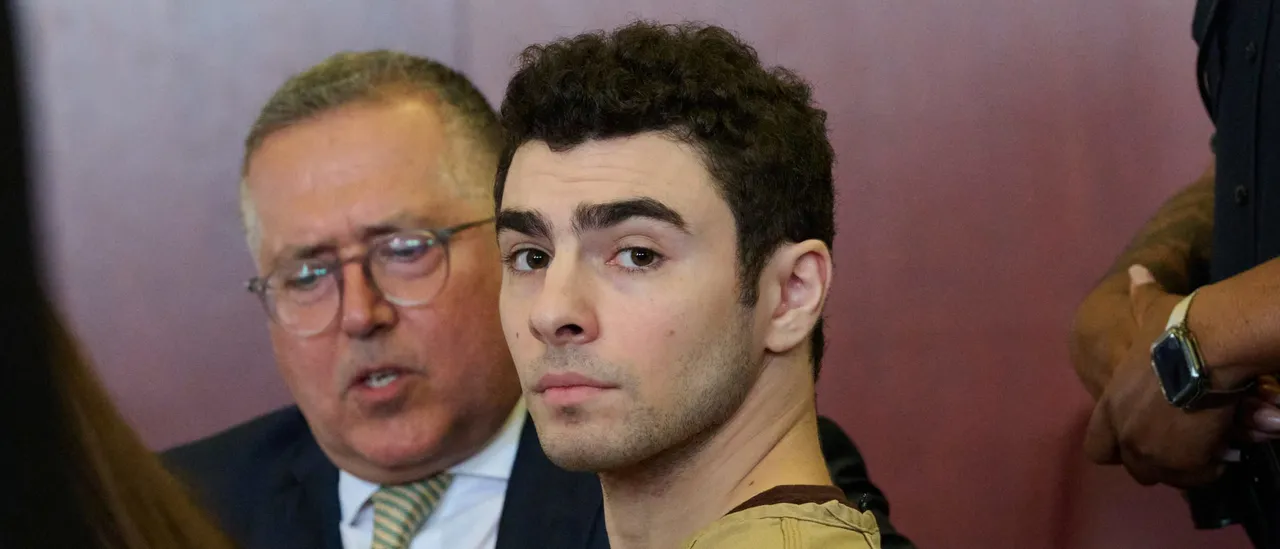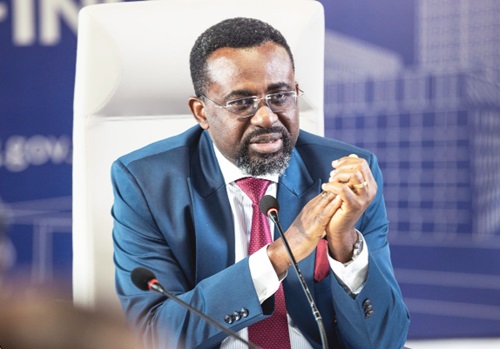Get To Know The Judge That Dropped Terrorism Charges Against Luigi Mangione — And Why He Did It
By Natalie Sandoval
Copyright dailycaller

Judge Gregory Carro is a “tough draw.”
If you’re a Manhattan defense attorney, that is. Carro, the judge overseeing Luigi Mangione’s case, has a reputation for leaning “pro-prosecution,” according to a December 2024 Business Insider report. Carro’s latest rulings in the Mangione case may temper that reputation. (RELATED: ‘Fantastic News’: Youths Rally For Luigi Mangione In Wake of Charlie Kirk Assassination)
Carro dismissed two counts against Mangione.
Murder in the First Degree (in furtherance of an act of terrorism) Murder in the Second Degree as a Crime of Terrorism
Prosecutors “presented legally sufficient evidence of all other counts, including Murder in the Second Degree (intentional),” Carro writes in his ruling.
Mangione is accused of murdering UnitedHealthcare CEO Brian Thompson on Dec. 4, 2024. Three shell casings were found on the scene. Scrawled on the casings were the words “depose,” “delay,” and “den” (likely meant to read “deny”).
Ken Klippenstein claims to have obtained a copy of Mangione’s manifesto.
“Frankly, these parasites simply had it coming,” the document allegedly reads. “A reminder: the US has the #1 most expensive healthcare system in the world, yet we rank roughly #42 in life expectancy … No the reality is, these [indecipherable] have simply gotten too powerful, and they continue to abuse our country for immense profit because the American public has allwed [sic] them to get away with it.”
Get ready for all sorts of absurd “scientific” research that tries to explain away “extremism” and violent left-wing terrorism in all sorts of different ways that have nothing to do with deliberate insurgency. Here’s a new one that says Luigi Mangione was simply “burnt out.” pic.twitter.com/hLlwIdA96b — RAW EGG NATIONALIST (@Babygravy9) September 17, 2025
Judge Carro claims prosecutors presented “insufficient evidence” to support the claim Mangione committed an act of terrorism, as defined by New York penal law.
“Under our law, a person is guilty of a Crime of Terrorism when, with intent to intimidate or coerce a civilian population, influence the policy of a unit of government by intimidation or coercion, or affect the conduct of a unit of government by murder, assassination, or kidnapping, he or she commits a specified offense,” the statute reads.
Note that the prosecution does not need to prove all of these elements beyond a reasonable doubt, only that Mangione acted with the intent to do one of the three.
“There was no evidence presented that [Mangione] made any demands of government or sought any particular governmental policy change, let alone that he did so by intimidation or coercion,” Carro writes.
“The defendant’s goal appeared to be to draw the public’s attention to what he perceived to be problems with the healthcare industry,” Carro continues.
What, then, of the “intent to intimidate or coerce a civilian population”? One might argue that Mangione acted with the intent to intimidate all healthcare CEOs, or all public-facing corporate figures.
This dirt bag stalked and planned murder. We are losing control. https://t.co/II5IKzgHCb — Tim Burchett (@timburchett) September 17, 2025
District Attorney Alvin L. Bragg had argued Mangione committed “a frightening, well-planned, targeted murder that was intended to cause shock and attention and intimidation,” according to The New York Times (NYT).
Carro cites People v. Morales, a 2011 case in which guidelines for defining a “civilian population” are established. The terrorism legislation is “intended to address extraordinary criminal acts perpetrated for the purpose of intimidating a broad range of people, not a narrowly defined group of particular individuals.”
“As in Morales, the question presented here is whether defendant’s act, no matter how heinous, fits within the definition of terrorism as set forth in the statute and as illuminated by legislative intent. This court does not believe that the legislature intended the employees of a company, however large, to constitute a ‘civilian population’ within the meaning of the statute,” Carro argues.
“Even if this court were to find the employees of one company to constitute a ‘civilian population’; there was no evidence presented that defendant’s conscious objective or intent was to intimidate or coerce the employees of United Healthcare,” the judge clarifies. (RELATED: Luigi Mangione’s Lawyers Promise He’s Not Legally A Terrorist While Demanding Exclusion Of Key Evidence)
Carro makes a convincing case for a narrow legal definition of “civilian population.” Existing legislation may be insufficient to respond to ideologically motivated murders of the sort Mangione is accused of committing. And of the sort Tyler Robison is alleged to have carried out against Charlie Kirk.
High-profile assassinations have a chilling effect on anyone who might share the views or occupations of the murdered: “You’re next.” That’s much of the “point” of an assassination.
Carro is the son of former New York Supreme Court Justice John Carro. Like his father, he’s been at the center of several high-profile cases.
Former nanny Yoselyn Ortega was convicted in 2018 of fatally stabbing Leo Krim, 2, and his sister Lucia Krim, 6, to death on Oct. 25, 2012. Carro sentenced Ortega to the maximum penalty: life in prison without the possibility of parole.
Carro called Ortega’s actions “pure evil,” quoting the words of one witness, according to the NYT.
Kevin Krim, father of the slain children, thanked Carro for his “commitment to justice” and his “sensitivity in presiding over this brutal case for five and a half years,” according to a transcript of his remarks at Ortega’s sentencing hearing.
Carro gave Carlos Diaz 35 years to life, short of the 50 years to life requested by prosecutors, for drenching his estranged wife in lighter fluid and setting her on fire with a blowtorch. Diaz then attempted to set his former boss on fire, according to the New York Post
Diaz’ wife survived, albeit with second degree burns, and testified at his trial.
Judge Gregory Carro is generally reckoned to be a tough judge, with experience of terror-related cases. This is a bizarre decision. https://t.co/eg1mPmWP51 — RAW EGG NATIONALIST (@Babygravy9) September 16, 2025
Carro tore into a former New York City cop for improper conduct with a drunk young woman at a sentencing hearing in 2011, according to Courthouse News.
“You’ve ripped a hole in that fabric of our society,” Carro told Kenneth Moreno, according to the outlet. “There has to be an import to all of that.”
“By your own admission, being in bed with a vulnerable, intoxicated young female,” Carro said, according to Courthouse News. “You’re a trained police officer.”
Carro reportedly suggested Moreno had lied to the jury.
“You told a story that was incredible: Admitting what you couldn’t deny; denying what you couldn’t admit,” the judge said. “You had a duty to testify truthfully, and it’s clear that you didn’t.” Moreno, along with another police officer, had been convicted of three counts of official misconduct in May 2011 but acquitted of all other charges, the NYT reported. (RELATED: ‘Targeted And Precise’: Luigi Mangione’s Manifesto Reveals New Details)
Carro gave Moreno a one-year prison sentence for misconduct, according to Courthouse News.
If Carro’s past statements are any clue, his judgement of Mangione will likely be withering.
Follow Natalie Sandoval on X: @NatSandovalDC



